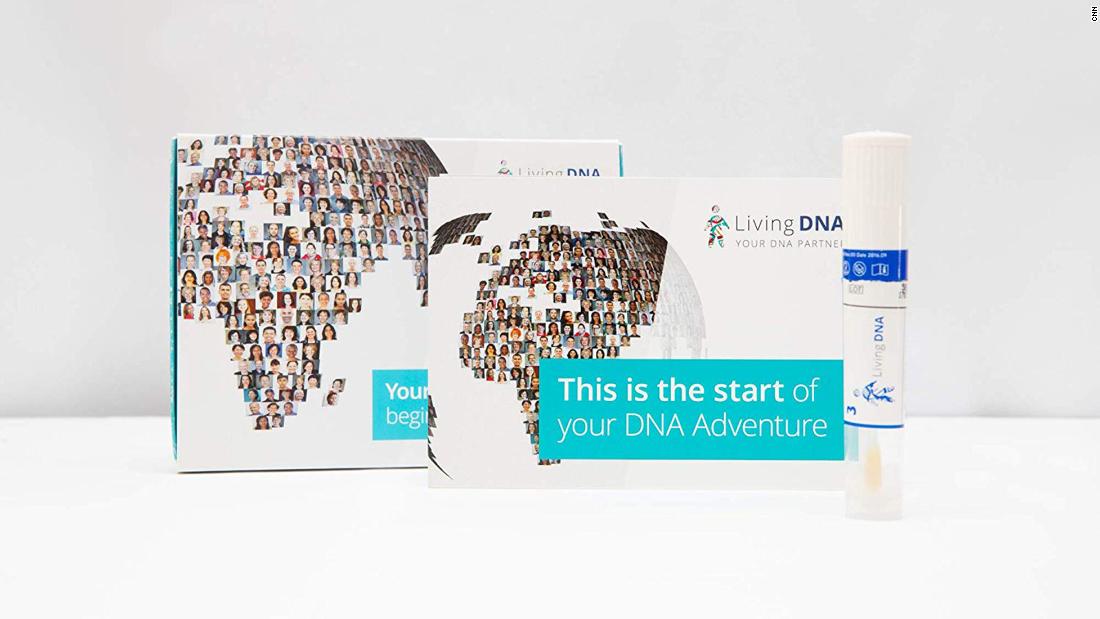
Story highlights
- UK-based company Living DNA is a relative newcomer in the DNA-testing market
- This DNA testing kits provides data from 80 regions worldwide-more than twice what its competitors offer
The UK-based company Living DNA is a relative newcomer in the DNA-testing market, but it's already making a name for itself. It boasts that its DNA testing kits ($59, originally $99; livingdna.com) provide data from 80 regions worldwide — more than twice what its competitors offer.
Living DNA launched in 2016 as a collaboration of more than 100 scientists, researchers and genetic experts and bills itself as a "3-in-1" DNA test: In addition to offering insight into users' more recent ethnic breakdown (and by "recent," we mean going back up to 80,000 years), Living DNA also tracks maternal and paternal ancestry to reveal how your ancient relatives may have spread out across the globe from Africa. The company touts its commitment to privacy, promising not to share your information with any third parties without your consent and offering users the ability to remove data from its system at any time.
If you're looking to take a deep dive into your origins, this could be a great time to check out Living DNA. The company is offering kits for $59 from now until April 25 for DNA Day, and for $79 from April 28 to May 12 as part of its Mother's Day sale. (Regular retail is $99.)
Take a look at how Living DNA works and stacks up to its competitors:
How it works:
After you order your kit online, Living DNA will mail you everything you need to collect a DNA sample. This is done via cheek swab — a definite step up from spitting into a test tube, as similar kits often require. Send the swab back in the included specimen pouch and be sure to activate your kit online. Living DNA will then analyze your sample and send you an email when your results are ready, which can take up to 12 weeks. For an additional $69, you can order a personalized coffee table book displaying your results.
The results:
So far, Living DNA is keeping things simple by offering just one test and focusing exclusively on ancestry (as opposed to things like heath traits). That said, Living DNA aims to provide a very high level of ancestral detail. Results are broken into three categories: family ancestry, motherline, and fatherline. The first category looks at your more recent ethnic roots, while the latter two break down your maternal and paternal heritage going back as far as 200,000 years. (Do note that because women do not carry Y-DNA, they'll only have access to the first two categories.)
Data points are beautifully displayed in various graphics, including a "What Makes You" visualization that overlays your estimated ethnic percentages on an illustration of a human body. Alternatively, you can look at your results on a map, toggling between "Global," "Regional" and even "Subregional" results. This final overview is another way Living DNA seeks to set itself apart, offering users the ability to zoom into specific regions within countries. Right now this feature is limited to 21 subregions in the British Isles (which makes sense, given that this is where the company is based), but Living DNA plans to flesh out its subregions over time.
Another of Living DNA's coolest features is its "Through History" visualization, which animates the spread of your ancestry at different points in history, going back as much as 80,000 years. Helpful notes interspersed throughout give users a glimpse into what life was like during these historical eras.
The motherline and fatherline categories, meanwhile, show proposed migration patterns out of Africa based on your specific haplogroup (a group with whom you share a common genetic ancestor going back tens of thousands of years). You'll be able to see how common your specific haplogroup is throughout different parts of the world as well.
Users can opt in to the company's "Family Networks" tool to potentially discover relatives, though this feature is currently still in beta testing. Matches are based on Living DNA's data pool, and as a newer company, this feature is not necessarily as robust as some of its competitors'. Of course, as the company grows and theoretically more people opt in, chances should increase of finding a match.
Overall, Living DNA is an impressive entry into the DNA testing kit market and a solid choice for those who want to dive deep into their family's history.
from CNN.com - RSS Channel https://cnn.it/2XGmvMT
No comments:
Post a Comment